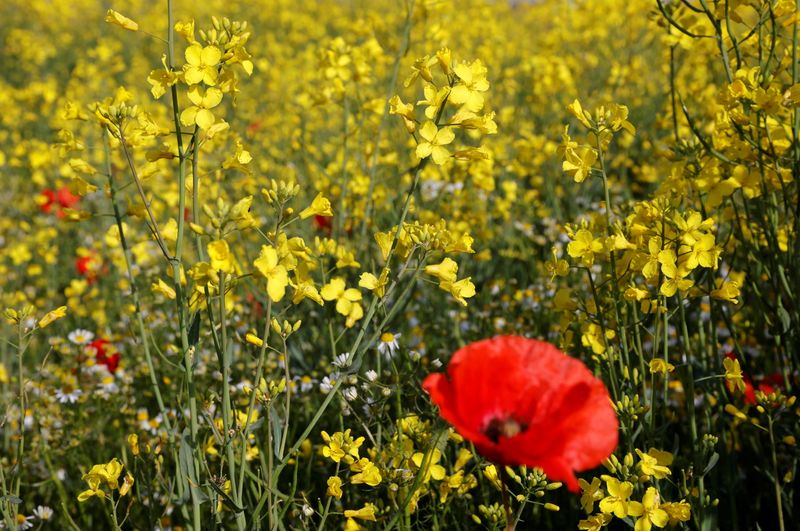By Kate Abnett
BRUSSELS (Reuters) -European Union talks on revamping the bloc's huge farming subsidies will continue on Friday, the European Commission said late on Thursday, as negotiators struggled to agree rules to support small farmers and make the agriculture sector greener.
The EU is nearing the end of a three-year struggle to reform its Common Agricultural Policy (CAP), which will make up roughly one-third of the EU's 2021-2027 budget. The bloc plans to spend 387 billion euros on payments to farmers and support for rural development, with the new rules kicking in from 2023.
"It's not over yet with the super trilogue and we shall meet again tomorrow morning at 9.00," EU agriculture commissioner Janusz Wojciechowski said in a tweet.
The "trilogue" refers to the Commission's three-way negotiations with the EU member states and the European Parliament, who must both approve EU laws. The negotiations had been due to finish on Wednesday.
Portugal, which represents the 27 member states in the negotiations, on Thursday evening proposed compromises on unresolved issues, including how much cash to spend on "eco-schemes" to protect the environment, like organic farming or re-wetting peatlands to absorb CO2.
The proposal, seen by Reuters, said countries must spend 18% per year of payments for farmers on such schemes -- either in that year, or by spending less on eco-schemes in that year but then compensating with more spending in later years -- or the country would lose the money. The proposal said countries should aim to spend a higher 25% share of payments on eco-schemes.
Parliament had wanted a 30% share. The member states' starting position was 20%.
The proposal also included rules to divert subsidies away from big landowners and businesses. It would require countries to redistribute 10% of their CAP payments for farmers to smaller farms, although states can dodge this if they prove they will use other methods to distribute the funds fairly.
The proposal would also ask the Commission to analyse the legal possibility of applying EU health and environment standards to imported agricultural products, to ensure European farmers are not undercut by competitors in countries with weaker rules.

European farmers and agri-cooperatives group Copa Cogeca said farmers would struggle to implement the CAP's environmental requirements, while receiving lower subsidies.
Climate campaigners have said the CAP will be toothless without firm targets to tackle the 10% of EU greenhouse gases emitted by the agricultural sector.